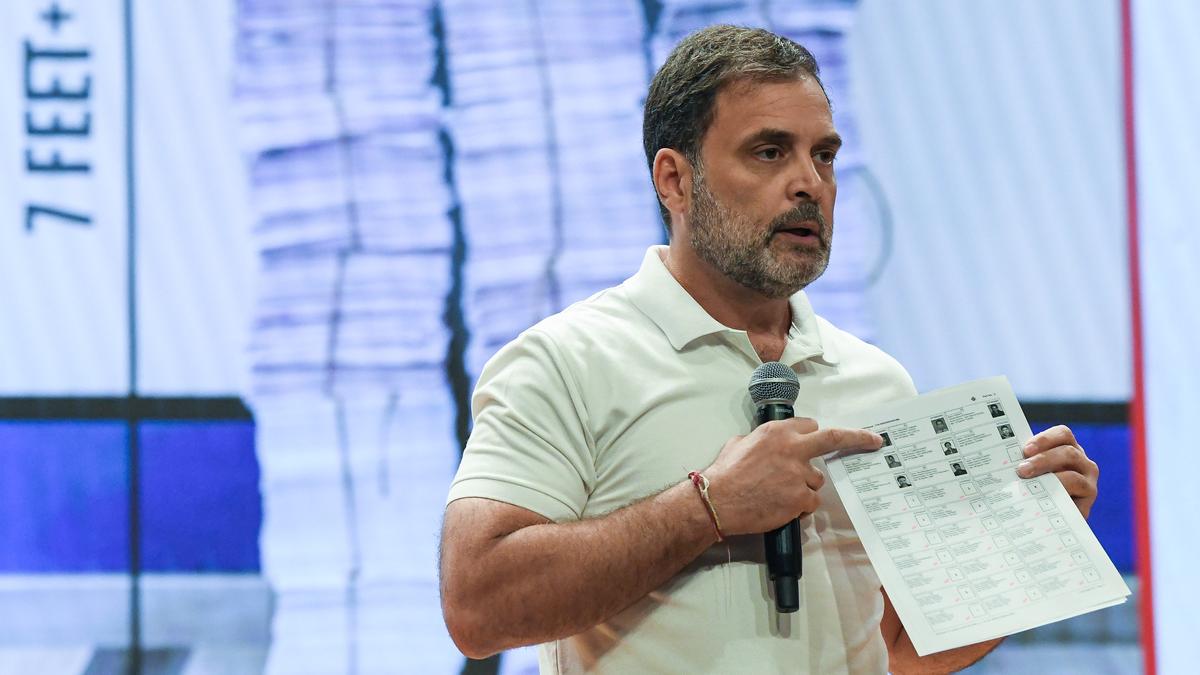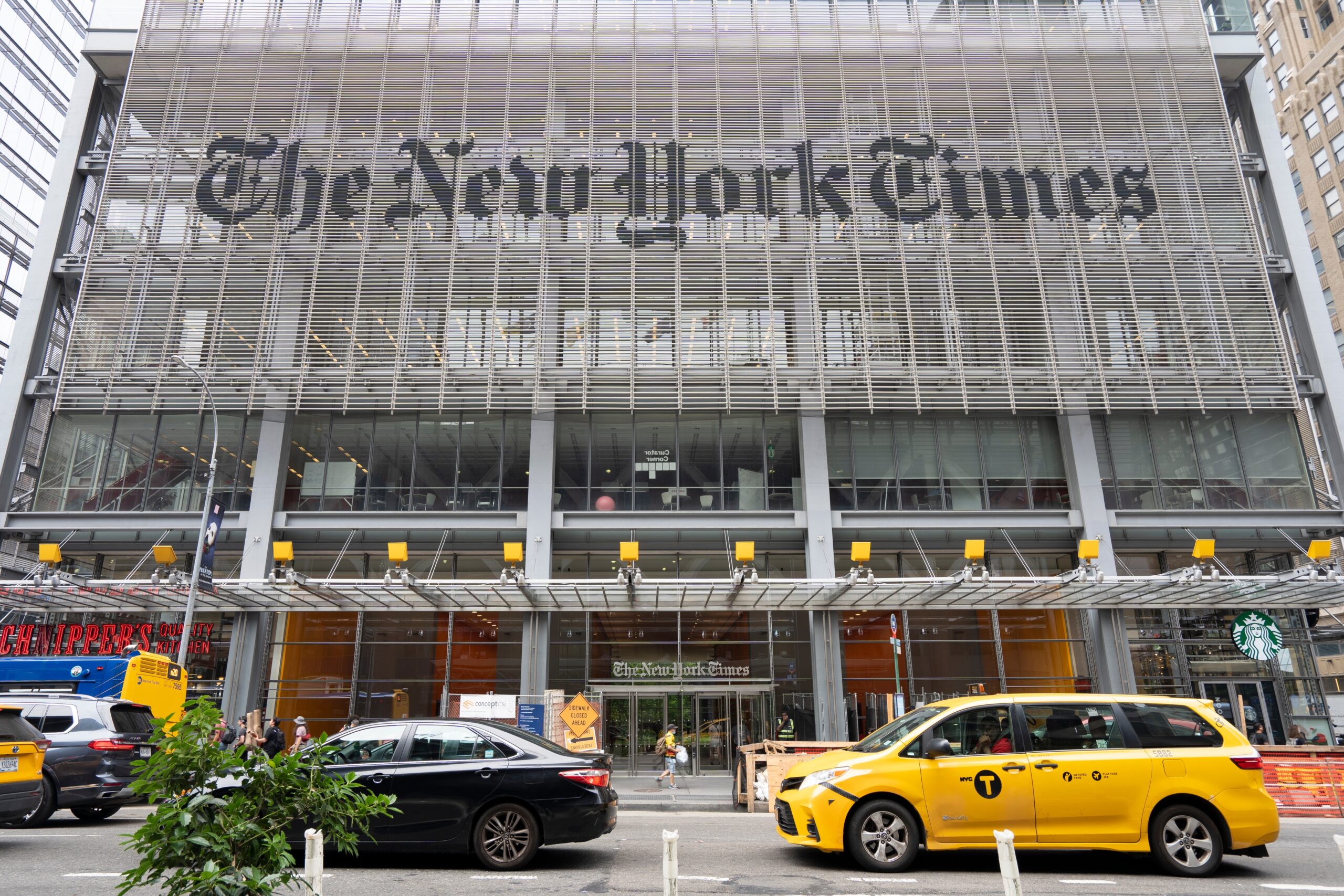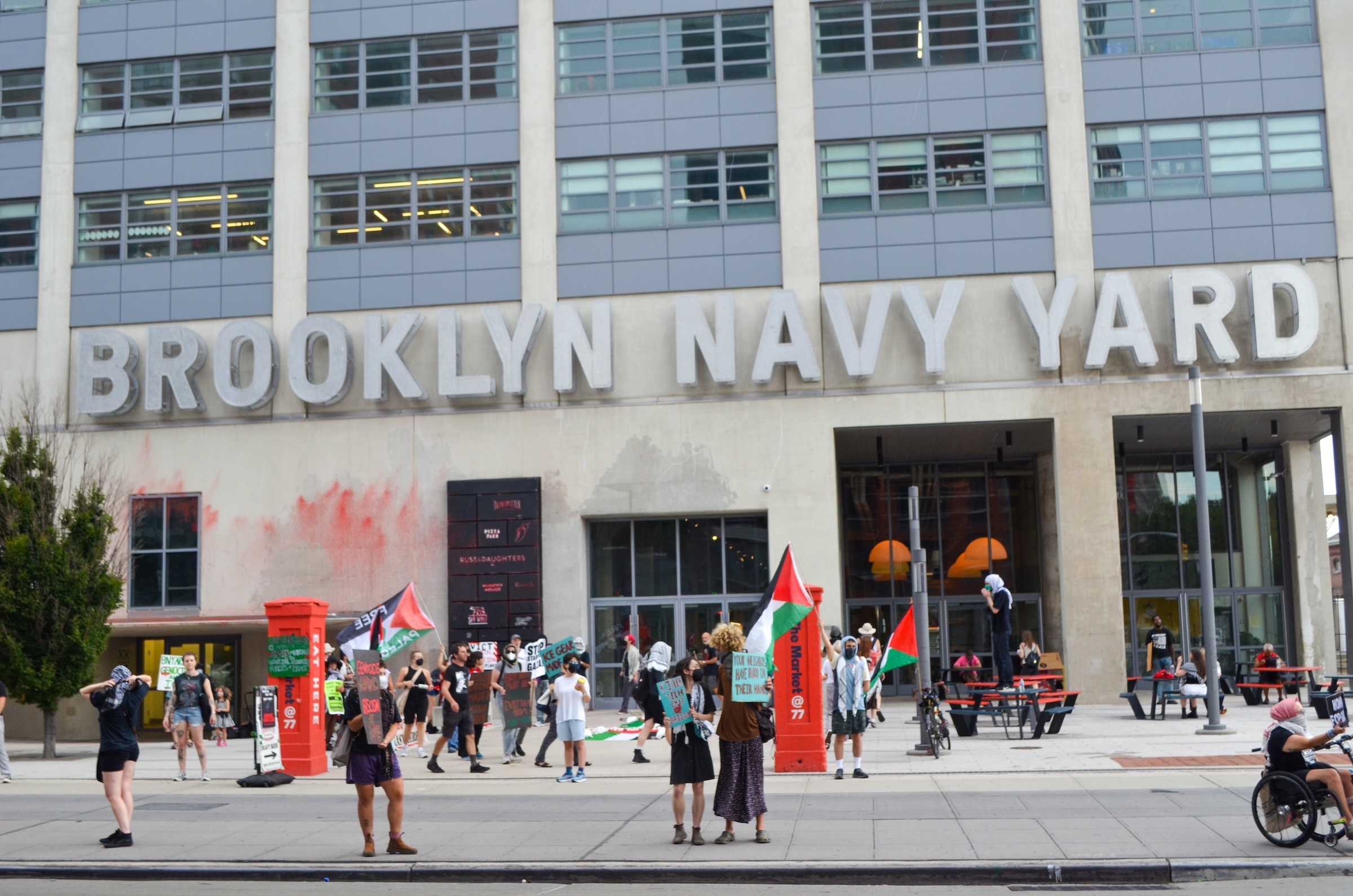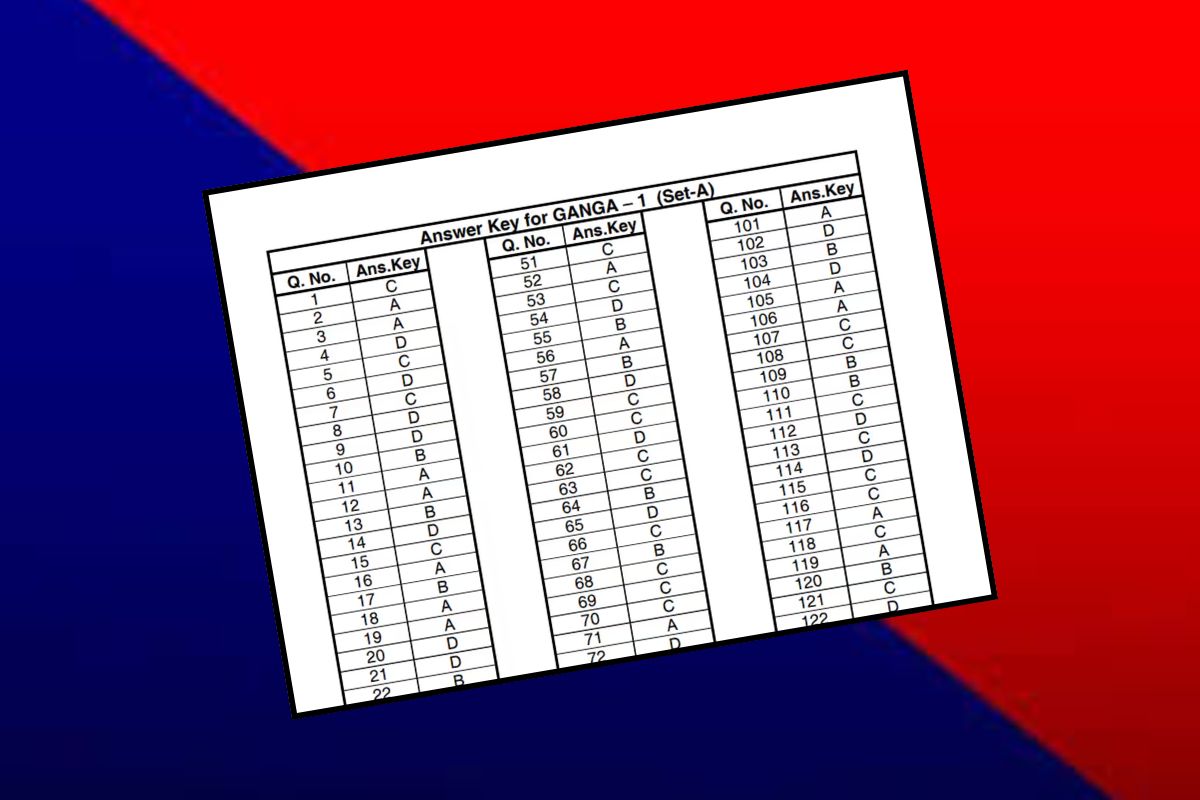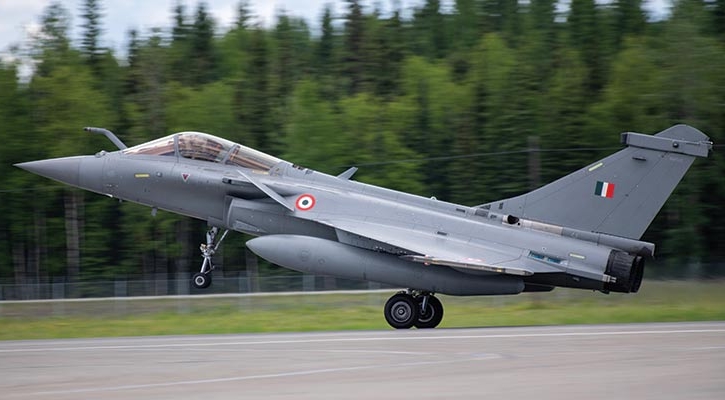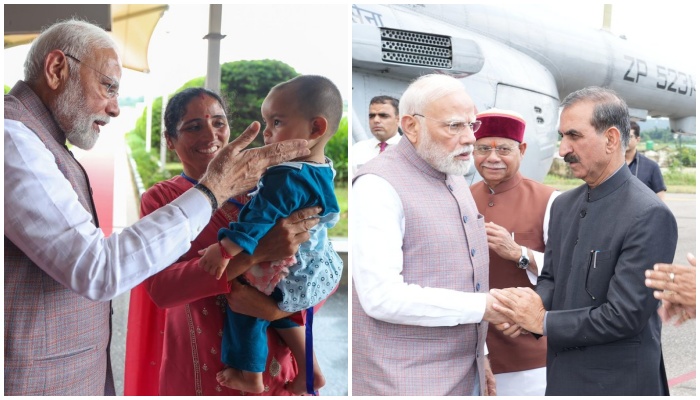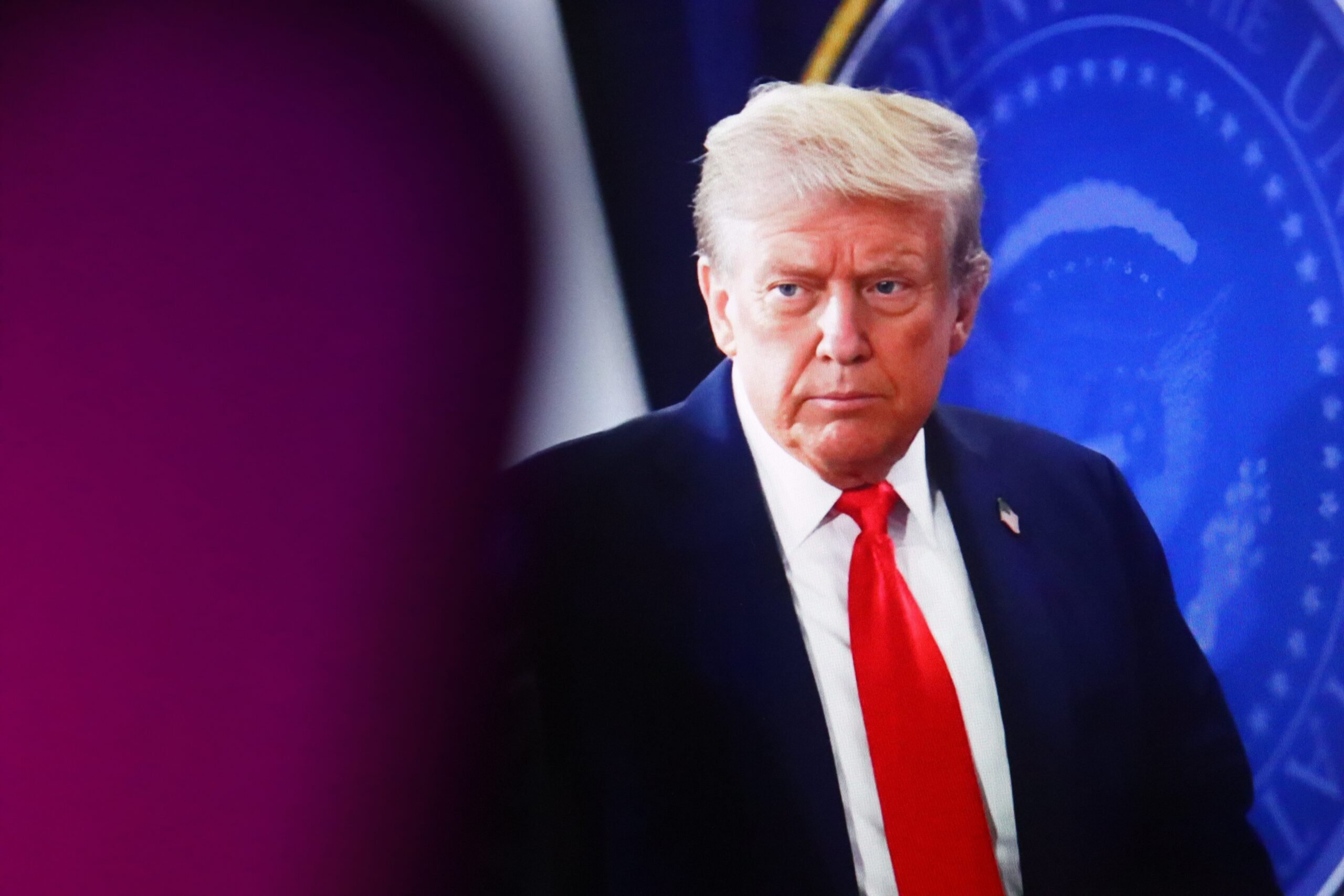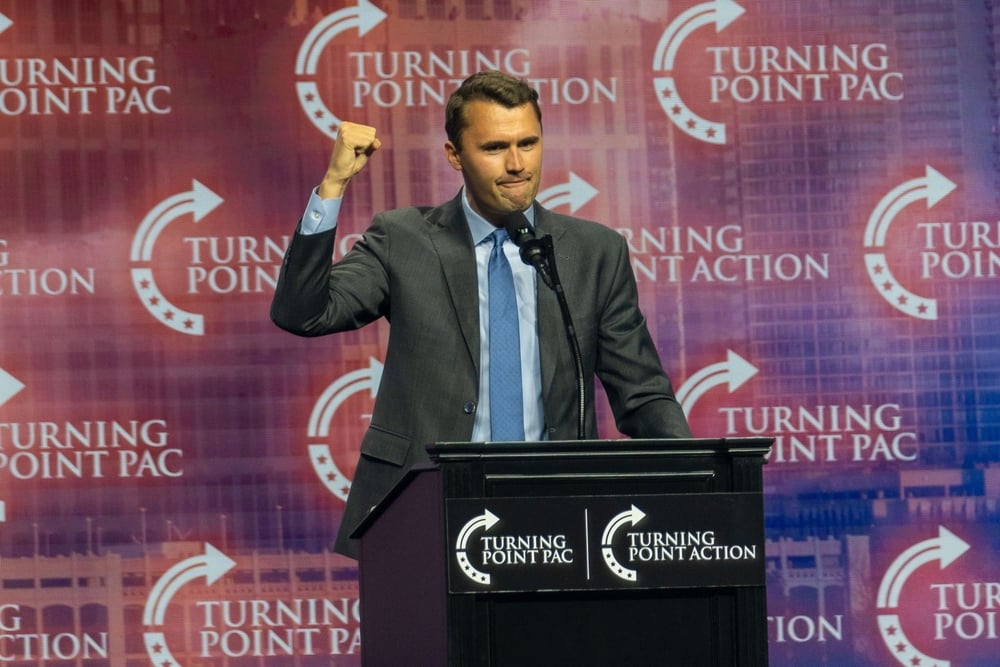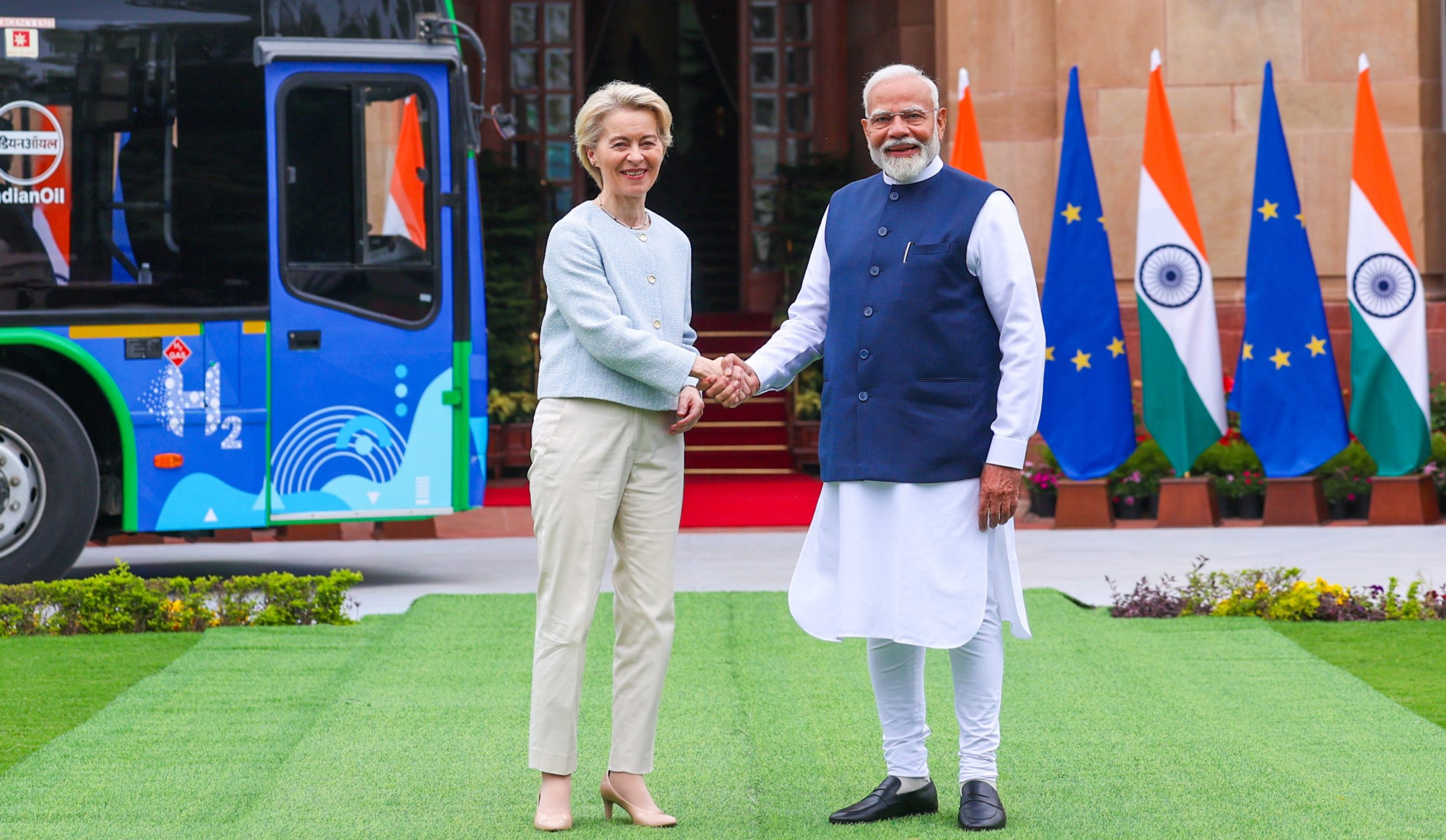As Pakistan browbeats about signing ‘defence agreement’ with Saudi Arabia, read how the bankrupt nation will end up as a ‘mercenary state’ of the Kingdom
The core existence of Pakistan revolves around Islamic terrorism and India hate, however, there is another disgraceful defining feature of this country—functioning as paid mercenary for other countries. On 17th September 2025, Saudi Arabia and Pakistan signed a “Strategic Mutual Defence Agreement”. This agreement is touted as Pakistan’s security guarantee against foreign attacks such as India’s Operation Sindoor, given the agreement’s clause that any aggression against either nations would be treated as an attack on both. In reality, however, it only solidifies Pakistan Army’s position as a mercenary force waiting for orders from Saudi Arabian administration for deployment. The agreement was inked during a state visit by Pakistan Prime Minister Shehbaz Sharif on Wednesday to Riyadh at the invitation of Crown Prince and Prime Minister of Saudi Arabia Mohammed bin Salman bin Abdulaziz Al Saud. According to a joint statement issued following the visit, “building on the historic partnership extending for nearly eight decades between the Kingdom of Saudi Arabia and the Islamic Republic of Pakistan, and based on the bonds of brotherhood and Islamic solidarity, as well as shared strategic interests and close defence cooperation between the two countries, HRH the Crown Prince and the Pakistani prime minister signed a Strategic Mutual Defence Agreement.” “This agreement, which reflects the shared commitment of both nations to enhance their security and to achieving security and peace in the region and the world, aims to develop aspects of defence cooperation between the two countries and strengthen joint deterrence against any aggression. The agreement states that any aggression against either country shall be considered an aggression against both,” the joint statement further read. Pakistan Army: Saudi Arabia’s outsourced muscle Interestingly, Pakistan has long been Riyadh’s outsourced muscle. Saudi Arabia has also earlier deployed Pakistan’s forces as its proxies in regional conflicts and internal uprising management. Since 2015, when the Saudi-led coalition launched airstrikes against a Shia Iran-backed Houthi, Riyadh sought ground support from allies, including Pakistan, after realising what blunder it committed. A subservient Pakistan obliged and sent thousands of troops to Saudi Arabia for invasion of Yemen. In 2018, Pakistani government decided to send 1,000 more troops to Saudi Arabia for deployment. It’s not that Pakistani parliament did not oppose deployment of its troops as mercenaries for a foreign nation. In fact, there was a period of diplomatic chill between the two nations. However, Saudi Arabia’s pressure tactics and chequebook diplomacy—aid and oil deferrals—made Islamabad mend its ways. In 2018, Saudi Arabia Pakistan had earlier maintained neutrality in the Saudi-Houthi conflict, however, it rushed to Saudi help not only with troops but with logistical support as well, when the latter decided to invade Yemen. For optics, Pakistan and Saudi Arabia may call each other ‘brothers’ and Islamic allies, their relation in reality, is that of a patron and client. Even in 1979, when Juhayman al-Otaybi’s militants seized the Grand Mosque in Mecca, Saudi turned to Pakistan and Islamabad deployed its elite SSP commandos to assist Saudi forces in reclaiming the mosque. The Saudi-Pakistani forces managed to crush down the militants with brutality, this episode exposed Pakistan’s willingness to act as a foreign nation’s crisis response team. Unsurprisingly, Riyadh paid back to Pakistan in form of financial aid and oil supplies and exported its Wahhabi jihadist ideology fuelling Islamist extremism which became precursor to the Taliban. In the 1970s-1990s, during the oil boom, Gulf monarchies like UAE, Saudi Arabia and Oman hired Pakistani forces to strengthen their nascent militaries against regional threats. In Oman, Pakistani troops, mostly Balochies, served as mercenaries fighting in the Dhofar war (1965-1977), to protect Sultan Qaboos’s regime. Pakistan secured financial rewards for its role as a mercenary in the wars of Gulf countries it fought at that time. Not to forget, how Pakistan funnelled in billions of dollars from the US on the pretext of fighting Taliban terrorists in Afganistan. Pakistan goes back to its mercenary business, Saudi Arabia secures subservient force, and Trump looks to bolster petrodollar The timing of this agreement is crucial. Saudi Arabia and Pakistan have inked the Strategic Mutual Defence Agreement amidst escalating tensions in the Middle East, particularly after Israel’s 9th September airstrike on leaders of the Palestinian Islamic terror group Hamas in Doha, Qatar. For Saudi Arabia, this agreement seems to be its attempt at diversifying security alliances to reduce overdependence on the US, and the presence of Pakistan’s Field Marshal Asim Munir at the meeting highlights the military’s central role. KSA will have a dollar-hungry
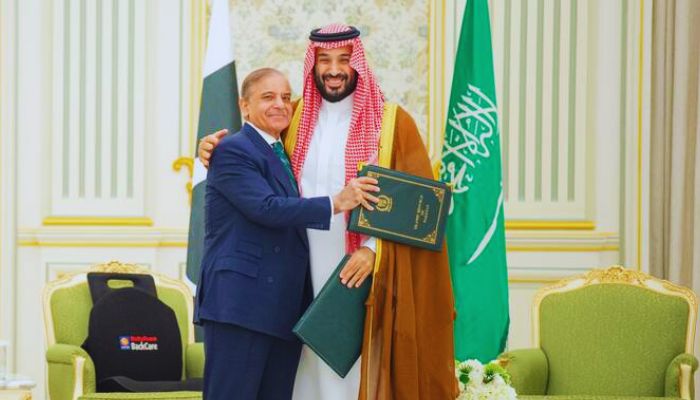


The core existence of Pakistan revolves around Islamic terrorism and India hate, however, there is another disgraceful defining feature of this country—functioning as paid mercenary for other countries. On 17th September 2025, Saudi Arabia and Pakistan signed a “Strategic Mutual Defence Agreement”.
This agreement is touted as Pakistan’s security guarantee against foreign attacks such as India’s Operation Sindoor, given the agreement’s clause that any aggression against either nations would be treated as an attack on both. In reality, however, it only solidifies Pakistan Army’s position as a mercenary force waiting for orders from Saudi Arabian administration for deployment.

The agreement was inked during a state visit by Pakistan Prime Minister Shehbaz Sharif on Wednesday to Riyadh at the invitation of Crown Prince and Prime Minister of Saudi Arabia Mohammed bin Salman bin Abdulaziz Al Saud.
According to a joint statement issued following the visit, “building on the historic partnership extending for nearly eight decades between the Kingdom of Saudi Arabia and the Islamic Republic of Pakistan, and based on the bonds of brotherhood and Islamic solidarity, as well as shared strategic interests and close defence cooperation between the two countries, HRH the Crown Prince and the Pakistani prime minister signed a Strategic Mutual Defence Agreement.”
“This agreement, which reflects the shared commitment of both nations to enhance their security and to achieving security and peace in the region and the world, aims to develop aspects of defence cooperation between the two countries and strengthen joint deterrence against any aggression. The agreement states that any aggression against either country shall be considered an aggression against both,” the joint statement further read.
Pakistan Army: Saudi Arabia’s outsourced muscle
Interestingly, Pakistan has long been Riyadh’s outsourced muscle. Saudi Arabia has also earlier deployed Pakistan’s forces as its proxies in regional conflicts and internal uprising management. Since 2015, when the Saudi-led coalition launched airstrikes against a Shia Iran-backed Houthi, Riyadh sought ground support from allies, including Pakistan, after realising what blunder it committed. A subservient Pakistan obliged and sent thousands of troops to Saudi Arabia for invasion of Yemen.
In 2018, Pakistani government decided to send 1,000 more troops to Saudi Arabia for deployment. It’s not that Pakistani parliament did not oppose deployment of its troops as mercenaries for a foreign nation. In fact, there was a period of diplomatic chill between the two nations. However, Saudi Arabia’s pressure tactics and chequebook diplomacy—aid and oil deferrals—made Islamabad mend its ways. In 2018, Saudi Arabia
Pakistan had earlier maintained neutrality in the Saudi-Houthi conflict, however, it rushed to Saudi help not only with troops but with logistical support as well, when the latter decided to invade Yemen.
For optics, Pakistan and Saudi Arabia may call each other ‘brothers’ and Islamic allies, their relation in reality, is that of a patron and client.
Even in 1979, when Juhayman al-Otaybi’s militants seized the Grand Mosque in Mecca, Saudi turned to Pakistan and Islamabad deployed its elite SSP commandos to assist Saudi forces in reclaiming the mosque. The Saudi-Pakistani forces managed to crush down the militants with brutality, this episode exposed Pakistan’s willingness to act as a foreign nation’s crisis response team. Unsurprisingly, Riyadh paid back to Pakistan in form of financial aid and oil supplies and exported its Wahhabi jihadist ideology fuelling Islamist extremism which became precursor to the Taliban.
In the 1970s-1990s, during the oil boom, Gulf monarchies like UAE, Saudi Arabia and Oman hired Pakistani forces to strengthen their nascent militaries against regional threats. In Oman, Pakistani troops, mostly Balochies, served as mercenaries fighting in the Dhofar war (1965-1977), to protect Sultan Qaboos’s regime. Pakistan secured financial rewards for its role as a mercenary in the wars of Gulf countries it fought at that time.
Not to forget, how Pakistan funnelled in billions of dollars from the US on the pretext of fighting Taliban terrorists in Afganistan.
Pakistan goes back to its mercenary business, Saudi Arabia secures subservient force, and Trump looks to bolster petrodollar
The timing of this agreement is crucial. Saudi Arabia and Pakistan have inked the Strategic Mutual Defence Agreement amidst escalating tensions in the Middle East, particularly after Israel’s 9th September airstrike on leaders of the Palestinian Islamic terror group Hamas in Doha, Qatar.
For Saudi Arabia, this agreement seems to be its attempt at diversifying security alliances to reduce overdependence on the US, and the presence of Pakistan’s Field Marshal Asim Munir at the meeting highlights the military’s central role. KSA will have a dollar-hungry Pakistan ‘Aand’ Forces at its disposal if and when the need arrives. Moreover, Saudi Arabia is also said to be eyeing Pakistan’s nuclear program which it is known to have funded. This makes even more sense given Israel is the only nuclear-armed country in the Middle East and poses a threat to Gulf countries.
While Israel’s Prime Minister Benjamin Netanyahu and US President Donald Trump denied America’s approval or support to Israel’s airstrike in Qatar, the attack alarmed Arab nations, especially, Saudi Arabia, which grew wary about the US’s reliability as their security guarantor. Not to forget, Israel has undertaken military operations not only in Palestine, but Iran, Lebanon, Syria, Yemen and now Qatar.
For Pakistan, this agreement is less a genuine security guarantee and more a codification of its historical subservience to Saudi interests. While Pakistan Army is the de facto ruler of Pakistan, now it going transform Pakistan into a de facto mercenary state. Islamabad will project this agreement as an elevation of its reputation among the Islamic countries, considering it is a nuclear-armed nation. However, its grim economic and political realities as well as failure to garner support of Islamic nations against India be it over the May conflict or Kashmir tells a different story.
Also, mercenaries can earn dollars, and perhaps, a pat on the back from its client but not a respect and global standing in a multipolar world becoming increasingly assertive of the essentiality of their territorial integrity and sovereignty. In fact, the Pakistani military elites will profit from Gulf gigs while the common Pakistani populace will only get further radicalisation, debt traps and vulnerabilities, as has always been the case.
This Saudi-Pak agreement offers disproportionate benefits to Riyadh, entangling Pakistan into Gulf conflicts while offering vague assurances of mutual defence. A section of Pakistani geopolitical analysts sees this agreement as a security guarantee against India, given the this comes just months after India inflicted a humiliating defeat on Pakistan in May, it hardly holds any value in India’s eyes. New Delhi never attacked Pakistan for territorial gains, Islamabad did, four times, and always lost. India’s attacks on Pakistan have only been in response to Pakistan-sponsored Islamic terrorism against India.
And since India and Saudi Arabia too have committed to cooperate in acting against terrorism, Riyadh will not jump to Islamabad’s defence in case India pounds Pakistan again in the aftermath of any misadventure by the latter. Reacting to the Saudi-Pakistan strategic defence agreement, Indian Ministry of External Affairs has said that it was aware of the possible formalisation of the long-standing agreement, and that New Delhi will study its implications.
“We have seen reports of the signing of a strategic mutual defence pact between Saudi Arabia and Pakistan. The Government was aware that this development, which formalizes a long-standing arrangement between the two countries, had been under consideration. We will study the implications of this development for our national security as well as for regional and global stability. The Government remains committed to protecting India’s national interests and ensuring comprehensive national security in all domains,” the MEA said.
Moreover, India and Saudi Arabia have lucrative trade ties and Riyadh would not want to ruin its relations with a thriving economic and nuclear power like India to defend a nuclear but economically dying Pakistan.
Despite this, it seems that Pakistan’s economic dependency on loans, bailout packages and foreign financial aid, coupled with desire to counter a Shia Iran by aligning with a Sunni Gulf to counter Iran and balance India, and Pakistan Army’s dollar greed have driven Islamabad to ink the agreement with Riyadh. It will not be surprising if in the coming months, Saudi Arabia asks Pakistan to deploy its troops, military supplies or to even strike Houthis in Yemen and defend Saudi in case Iran strikes them in the future.
There, however, is another aspect to the Saudi-Pakistan agreement. The United States appears to be subtly orchestrating a new energy chessboard drawing Saudi Arabia and Pakistan into closer alignment, extending the lifeline of the petrodollar through innovative channels like stablecoin linkages, while simultaneously turning the screws on India’s refining of discounted Russian crude. Not to forget, India has been diversifying its crude oil purchases in the recent years even though Russia became New Delhi’s key supplier since the Ukraine-Russia war started.
Apparently, the strategy is to reconfigure trade flows to claw back lost market share for Aramco in Asia and for American LNG across Europe.
However, it remains to be seen how Pakistan’s so-called ‘iron brother’ China reacts to this, considering Beijing sees Saudi Arabia as a US proxy and is also entangled in a trade war with Washington. In addition, Iran would also be displeased with Pakistan over the latter’s cozying up to its two adversaries, Saudi and the US.




